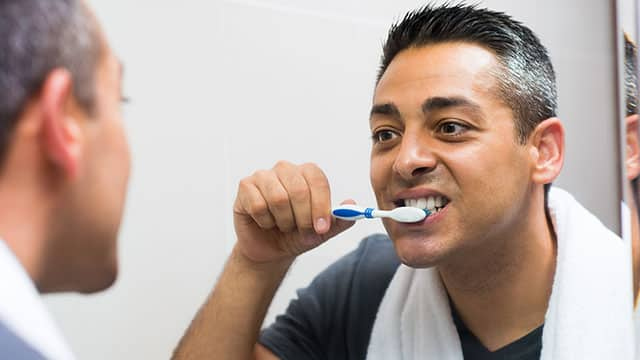Why Do You Need a Specialist?
Dental implant surgery consists of replacing your tooth roots with metal, screw-like posts and replacing your missing teeth with artificial teeth. These new teeth look and function much like real ones. Since they’re surgically placed in your jawbone, the titanium in the implants fuses with your jawbone. This means your implants won’t slip, make noise, or cause bone damage the way fixed bridgework might.
The way the surgery is performed depends on the type of implant and the condition of your jawbone. Dental implant surgery can be quite complicated, and so a dental implantologist is the best person to perform this type of procedure.
How Do You Find the Right Dental Implantologist?
The planning process for dental implants can include many specialists, including a periodontist, an oral and maxillofacial surgeon, a prosthodontist, and occasionally an ENT specialist.
Dental implants are intimately connected with your gum tissues and underlying bone, so periodontists are an excellent choice to help you install your implant. It’s worth noting that both periodontists and oral and maxillofacial surgeons have specialized training in the field of implant surgery.
Another way to find an accredited implantologist is through this directory provided by the American Academy of Implant Dentistry (AAID).
So how does one become an implantologist? AAID implantologists have attained different levels of certification. AAID associate fellows have 300 hours of continuing education in implant dentistry under their belt, as well as 1+ years performing implant surgeries. AAID fellows have been performing implant dentistry for 5+ years and have 400 hours of continuing education in the same field. Both AAID associate fellows and fellows have also completed oral and written exams.
An even higher certification is if they are a diplomate of the American Board of Oral Implantology/Implant Dentistry. These dental professionals need to have practiced implant dentistry for at least seven years and completed implant procedures on at least 75 people.
That said, can a general dentist perform an implant surgery? The best way to be sure is by asking your general dentist if they’ve attained any level of certification from AAID.
So Are Implants Right for Me?
If you need to replace damaged or missing teeth, dental implants could be right for you. But first, an implantologist will need to assess if you have healthy oral tissues, adequate bone to keep the implants in place, and a jawbone that’s reached full growth. These factors help determine if your mouth can handle implants.
You will also need to commit several months to the process and consistently maintain good oral hygiene. This is so that your mouth heals properly and you don’t experience implant failure.
A good implantologist will guide you through the process and help ensure that your implant surgery is successful. If you’re thinking about getting implants, the first step is to consult with a dentist. Your dentist can help you find the right implantologist and guide you towards getting the perfect smile you’ve always wanted.
Oral Care Center articles are reviewed by an oral health medical professional. This information is for educational purposes only. This content is not intended to be a substitute for professional medical advice, diagnosis or treatment. Always seek the advice of your dentist, physician or other qualified healthcare provider.
ORAL HEALTH QUIZ
What's behind your smile?
Take our Oral Health assessment to get the most from your oral care routine
ORAL HEALTH QUIZ
What's behind your smile?
Take our Oral Health assessment to get the most from your oral care routine














